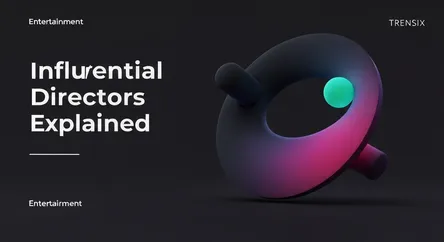Entertainment
Influential Directors Explained

Explore the visionary directors who shaped cinema history. Learn about their unique styles, groundbreaking techniques, and lasting impact on film.
What is it?
Influential directors are filmmakers whose distinct vision, innovative techniques, and narrative style have left a permanent mark on the art of cinema. These auteurs, such as Alfred Hitchcock, Akira Kurosawa, Stanley Kubrick, and modern masters like Christopher Nolan, are celebrated for more than just directing; they are seen as the primary authors of their films. They often develop a signature aesthetic or thematic focus that is recognizable across their body of work, from specific camera movements to recurring motifs. Their films don't just tell stories—they redefine how stories can be told on screen, pushing the boundaries of the medium.
Why is it trending?
The conversation around influential directors is perpetually active, fueled by new releases from acclaimed filmmakers, anniversary retrospectives, and the constant stream of video essays and online film analysis. Social media and platforms like Letterboxd empower cinephiles to debate the merits and impact of various directors, creating endless rankings and discussions. The rise of streaming services making classic films more accessible also allows new audiences to discover the works of past masters, keeping their legacies vibrant and relevant in contemporary film culture.
How does it affect people?
The work of influential directors profoundly shapes audience expectations and cultural conversations. They introduce new visual languages and narrative structures that often become mainstream, influencing everything from blockbuster hits to independent films. For viewers, understanding a director's unique style can transform movie-watching from a passive experience into an active appreciation of artistic choice. It encourages a deeper analysis of themes, cinematography, and sound design, enriching our connection to the stories we see on screen and inspiring aspiring filmmakers to find their own creative voice.